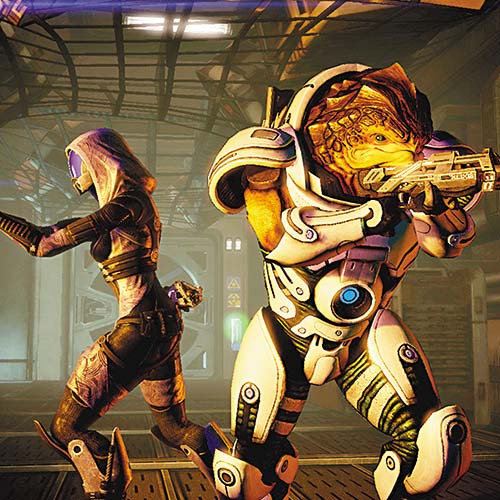Whose story is it anyway?

Who is in control of the narrative of a video game: the developer or the player?
The answer is a little bit of both.
Let’s take a game like Mass Effect 2. In order to successfully infiltrate the Collector base at game’s end, players must fulfill certain mission requirements: recruiting squad members like Garrus, Mordin and Tali; visiting Eden Prime; and so forth. Missions can only end in several set ways (like successfully or unsuccessfully defending Tali during her treason trial), and Shepard’s personality will always rest on some point on the Paragon-Renegade spectrum.
In this sense, BioWare remains in control of everything a player does; nothing that BioWare has not consciously programmed into the game can happen.
However, every player’s experience playing ME2 will be entirely unique.
My Shepard is not like your Shepard. I decide Shepard’s motivations and actions within the system. My Shepard was in love with Miranda, sympathized with the Geth and Krogans, and was capable of ruthless pragmatism at the best of times (he did not destroy the Collector base at the end of the game). A simple soldier at heart, he was prone to charging directly into battle to punch an enemy in the face instead of sniping from afar.
By choosing to take particular actions within the game world, I created within that world a unique narrative. No one else’s Shepard will do the same things that I did for the same reasons. One person could avoid bringing Miranda on missions at all costs and thus forge a better relationship with Garrus and Jacob; another might fail to recruit Legion and miss out on its character entirely. Same game, different experience.
This effect is present though less pronounced in more linear titles like Final Fantasy or Uncharted. The world exists around you, but the actions you take within it are entirely your own. In this way, storytelling operates differently than it would in a film or novel.











